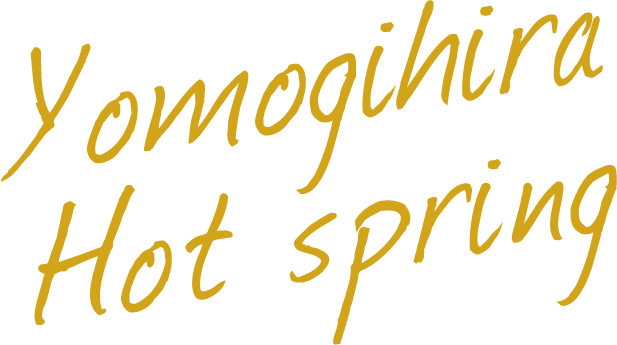



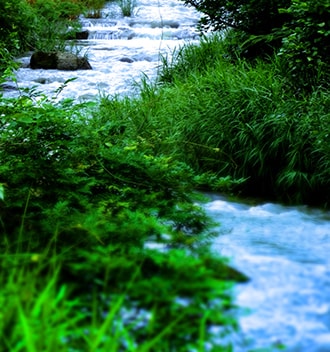

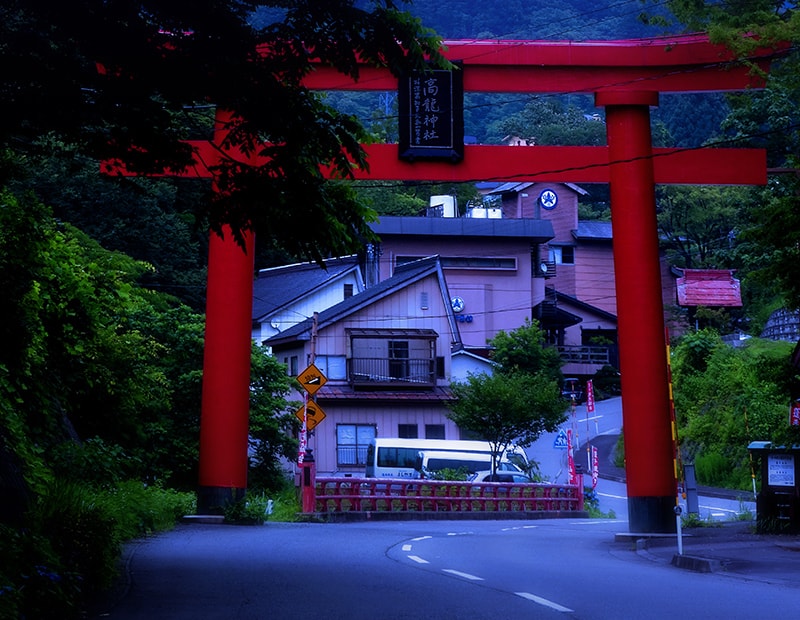


trip / 01
A short 25 minute drive from downtown Nagaoka city takes you along verdant green corridors into lush mountains and valleys. Feeling the change of seasons in the air, tunnels whisk you past Nigorisawa village when suddenly, up the way, appears a bright red torii gate. This is the entrance to Yomogihira Onsen.
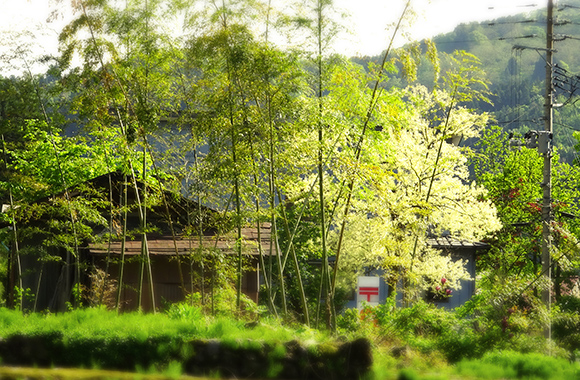
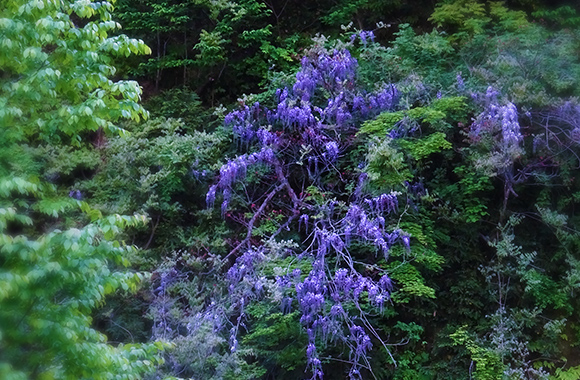
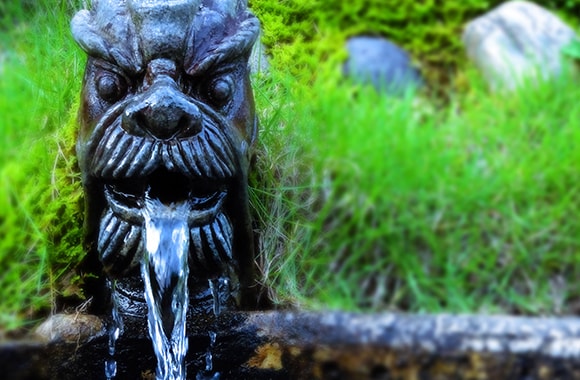
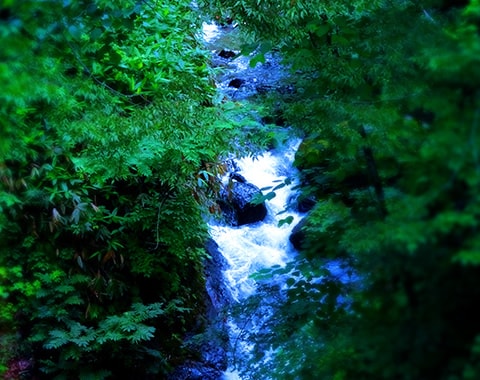
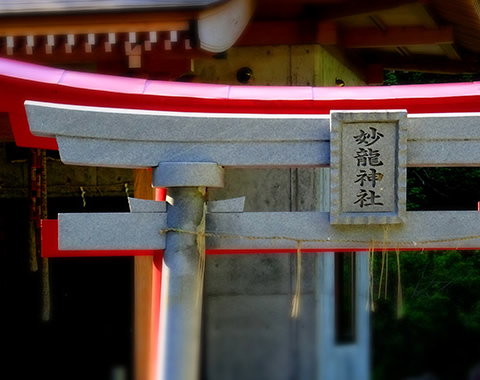
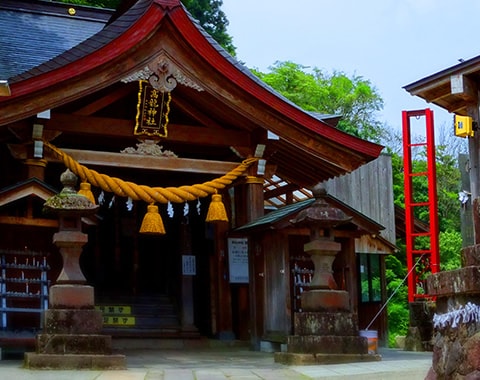
trip / 02
Yomogihira is one of three villages in the area. Each village has a
shrine: Kōryū Shrine in Yomogihira; Myōryū Shrine in Nigorisawa; and
Fudō Shrine in Take-no-kōchi.
Proceeding under the torii gate, you pass three hot spring inns on the
approach to Kōryū Shrine: Yomoyamakan, Izumiya, and Fukubikiya.
This is Yomogihira Onsen.
trip / 03
Follow the Ōta River running through the village,
past the inns, and alongside the path to Kōryū Shrine. Then continue up
to Fudō Waterfall, at the foot of Fudō Shrine in Take-no-kōchi. Stand
here, look out over the radiant landscape unfolding below you, and this
river, winding down from the waterfall to the torii gate below is
transformed: Can you see the Dragon God rising to the heavens?
Experience for yourself the spiritual power of this place. You are sure
to find sanctuary in the dignified atmosphere of this sacred waterfall.
trip / 04
Said to have been founded 1200 years ago by Kūkai (Kōbō Daishi, the "Great Teacher") during his nationwide pilgrimage (Kōnin era, 810-824 CE), Fudō Shrine is located in Take-no-kōchi, regarded as a sacred “power spot” since ancient times. Kūkai was so impressed by the majesty of the waterfall that he was moved to carve a stone statue of Fudō Myōō and enshrine it on the banks.
trip / 05
Situated along the Ōta River on the approach to Kōryū Shrine and
brimming with the spiritual power of Fudō Myōō, the natural hot springs
of Yomogihira Onsen have been flowing since ancient times.
Take a moment to relax. Why not forget about work and spend the day at
the Healing Springs of Echigo? The luxurious waters are said to cure
intractable diseases, offer relief from the world's pains, and give you
strength for tomorrow.
spot introduction
-
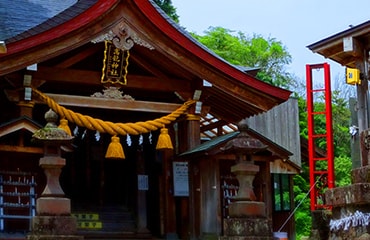
Kōryū Shrine
Nanbokuchō period (1336-1392). A samurai warrior, wounded in battle, prays to the Dragon God. Appearing before him, the Dragon God speaks: "At the end of this path there is a white spring. Go there and heal your wounds." The samurai did as he was told. When he entered the water, his wounds were miraculously healed.
Villagers who heard this legend built Kōryū Shrine to honor the healing power of the Dragon God. The “white spring” is the mineral spring of Yomogihira Onsen, and it continues receive a stream of visitors from from across Japan.
The Dragon God's messenger is the White Snake. It is said that the White Snake lives in the cracked stone of the inner sanctuary (oku-no-in). Today visitors to the shrine still bring offerings of eggs and candles to the Dragon God. -
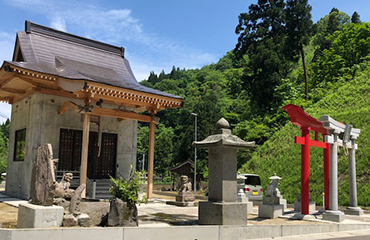
Myōryū Shrine
A local man became very successful in business in old Tokyo during the late Edo period (1603-1868). Once, as a child, he was about to be swept away by the Ōta River when six snakes saved his life.
Years later, he received a message in a dream telling him to built Myōryū Shrine on that spot. Today, the shrine is carefully maintained by his descendants and the local villagers. (The shrine building was moved to its current location in 2020 due to road renovations.)
Visit Hana-no-yado Yomoyamakan Hot Spring Inn
Visit Izumiya Hot Spring Inn
Visit Horaikan Fukubikiya Hot Spring Inn
Ryokan The Three Hot Spring Inns at Yomogihira Onsen
Hana-no-yado Yomoyamakan
130-1 Yomogihira-machi,
Nagaoka City, Niigata,
Japan
940-1122
TEL0258-23-2121
Fax0258-23-2783
Izumiya
1508-2 Yomogihira-machi,
Nagaoka City, Niigata,
Japan 940-1122
TEL0258-23-2231
Fax0258-23-1186
Horaikan Fukubikiya
1227 Yomogihira-machi,
Nagaoka City, Niigata,
Japan
940-1122
TEL0258-23-2221
Fax0258-22-3716
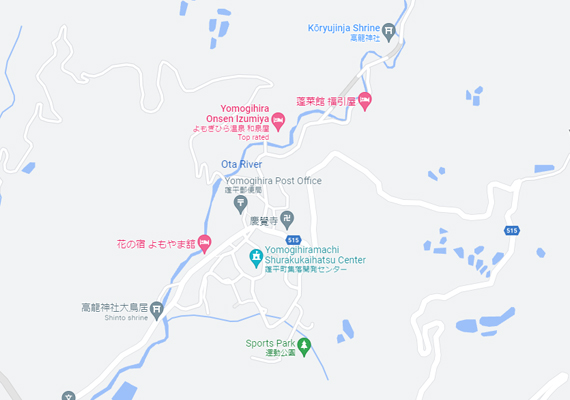
Map of Yomogihira Onsen
Google Maps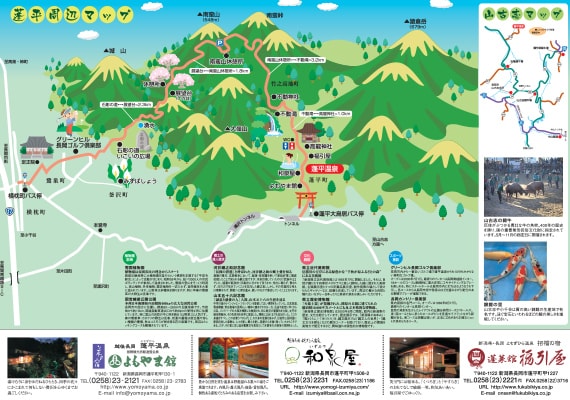
Yomogihira Onsen Sightseeing Map
Download PDFWeb Site Click here for the official homepage of Yomogihira Onsen
Click here for the official homepage of Yomogihira Onsen Check out the Yomogi Blog, our event calendar, information about Nagaoka City, learn the history of Japanese "onsen" hot springs, and more!
Official WebsitePick Up Highlights nearby Yomogihira Onsen
Pick Up / 01 Japanese Bullfighting
"Ushi-no-tsuno-tsuki" (roughly, "tangling the horns"), famously chronicled in Kyokutei Bakin's 19th century novel, Chronicles of Eight Dogs, is a form of bullfighting that has been taking place in the Yamakoshi and Ojiya districts near Yomogihira Onsen since the Edo period (1603-1868). This bold and exciting event is still held regularly from May to November.
Pick Up / 02 The Birthplace of Koi Fish
Ojiya, about 30 minutes over the mountains by car from Yomogihira Onsen, began in the early 19th century as the birthplace of the colorful Japanese koi fish that have since become world famous. They are called nishikigoi, which means "embroidered koi," to distinguish them from ordinary black carp. You can marvel at and purchase the finest, authentic Japanese koi anytime at “Ojiya Nishikigoi Village.”

